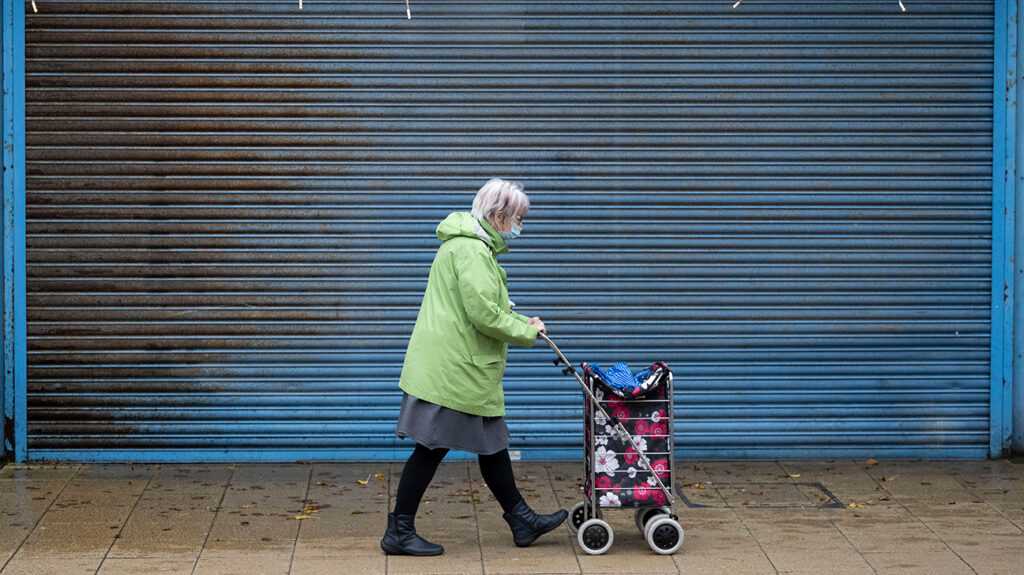How ethnic wellbeing inequities affect older men and women in England
04 February, 2021

Health inequities are actually systematic differences found in the distribution of well being resources or health status among different groups, resulting in unfair outcomes. The conditions in which persons are born, expand up, live, enjoy, work, age, and worship profoundly influence their health.
The social determinants of health include education, financial stability, healthcare access and quality, neighborhood, and occupation. When government policy supports equal usage of and distribution of solutions, health disparities and poor health outcomes may be reduced.
In England, the populace of folks aged 55 years or older is now more ethnically diverse. Info suggests that large health disparities can be found among ethnic groupings, especially in older individuals.
However, there is bound available detail about the dissimilarities across ethnic teams and the sources of these ethnicity-related health disparities. So researchers at the University of Manchester, in britain, attempt to analyze ethnicity-related disparities in the HRQoL among more aged adults.
To do this they used info from a sizable nationally representative study - the English Standard Practice Patient Survey.
Dr. Ruth Watkinson, the lead author of the study, says: “The disproportionate number of deaths due to COVID-19 in minority ethnic groupings provides highlighted ethnic inequalities in wellness among older parents in England. Our analysis adds detail to proof these inequities and their drivers prior to the pandemic.”
HRQoL worse in 88% of minority ethnic groups
The study examined data from 1,394,361 surveys taken between July 1, 2014, and April 7, 2017, from adults aged 55 years or older who were registered with a general practice in England consistently for at least six months.
In this sample, 89.1% of the participants self-determined as white British/Northern Irish. Eleven percent self-identified as owned by an ethnic group which, in comparison to the majority of the research sample, was in the minority.
The ethnicities were clustered into five metagroups:
- “White ethnicity: British or Northern Irish, Irish, Gypsy or Irish Traveller, or another white colored ethnicity
- Blended or multiple ethnic teams: White and Black Caribbean, light and Black African, white colored and Asian, or various other combined or multiple ethnic groups
- Asian ethnicity: Indian, Pakistani, Bangladeshi, Chinese, or any various other Asian ethnicity
- Black: African, Caribbean, or perhaps any other Black ethnicity
- Additional ethnic group: Arab or any other ethnicity”
The researchers analyzed HRQoL across five areas:
- Mobility
- Self-care
- Capability to do usual activities
- Discomfort or pain
- Depression or anxiety
The researchers scored each domain according to five levels, which range from no problems to extreme problems, plus they compared HRQoL across 17 ethnic groups. Composite ratings from these five amounts ranged from 1, representing perfect health, to -0.594, representing poorest health.
The team then further analyzed the partnership between ethnicity and health by incorporating the following determinants:
- the presence of one or extra long-term health conditions
- experiences with primary care
- how much support from local services
- patient self-assurance within their own health management
- the amount of social deprivation in the respondents’ residential areas
The study found that HRQoL was worse in approximately 88% of the minority ethnic groups, weighed against the white British ethnic group, among men and women.
People of Irish Traveller or perhaps Gypsy, Pakistani, Bangladeshi, or Arab ethnicities had an average HRQoL decrease equal to or greater than the decline connected with a 20-year upsurge in age. Also, women in these ethnic organizations generally had a greater decrease in HRQoL.
The analysis detected better HRQoL in two ethnic groups: Chinese women and men and Dark African men. Upon subgroup examination, the study showed that HRQol advantage was regular for Chinese guys of most age groups, but only for Black African males aged 55-64 and Chinese women aged 65-74.
The presence of long-term conditions, multiple health issues, low self-confidence in managing health, poor experience with primary care, inadequate support from localized services, and a higher degree of social deprivation accompanied greater ethnic disparities in HRQoL among these minority groups, compared with the white British ethnic group.
The investigation’s limitations involve non-response bias and the exclusion of some vulnerable or geographically portable older adults.
Also, the analysis recorded data for 10-year age ranges, leading to imprecise adjustment for actual age-to-age comparisons and a possible underestimation of health disadvantages.
Source: www.medicalnewstoday.com
TAG(s):
